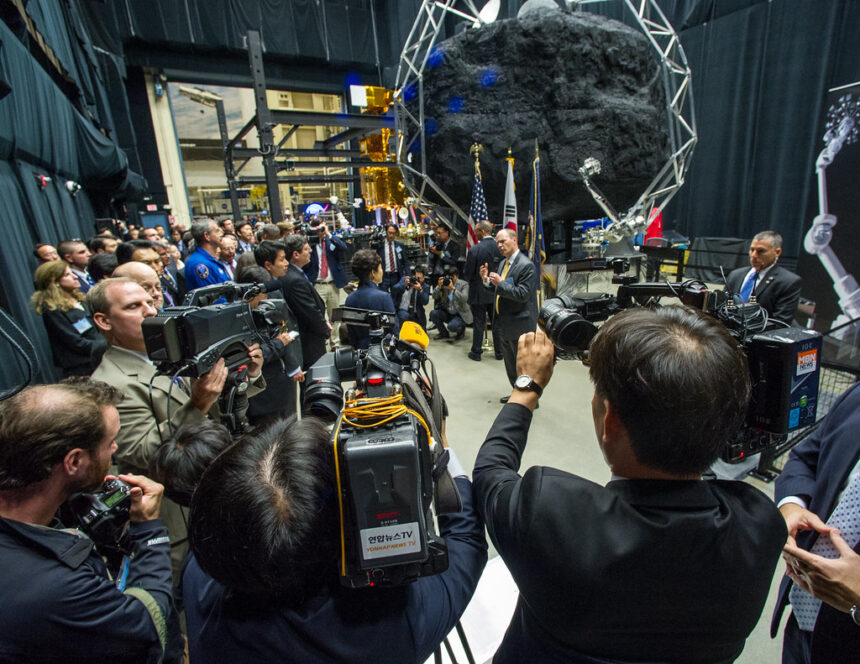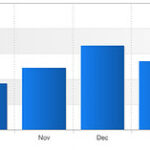US President Donald Trump announced that new import duties of 25% would be imposed on automobiles and auto parts. This move threatens to increase global trade tensions.
Tariffs for vehicles will be implemented on April 2, with levies expected in May.
Trump justified the decision by stating that the US automotive industry would be stimulated through the creation of jobs and investment.
Analysts warn, however, that this policy may backfire, disrupting global supplies chains and increasing vehicle prices. It could also strain relations with allies such as Japan, South Korea and Germany.
Tariffs will also likely increase the price of cars sold in the US.
Bernstein analysts estimate the new taxes could cost automakers up to $75 billion annually, which will be likely passed onto consumers.
These price hikes will primarily affect middle-income consumers.
Many American consumers may find it difficult to afford affordable models like the Chevrolet Trax which is made in South Korea.
Erin Keating is an executive analyst with Cox Automotive.
Stocks fall on Asian automakers
Asian automakers were the worst hit by Trump’s decision.
Nissan shares, which have two factories in Mexico, fell by 1.8%.
Mazda Motors saw the biggest drop, with a 6.4% decline. Mitsubishi Motors experienced a 4.4% decrease.
Kia Motors, a South Korean carmaker, also suffered a decline of over 3%. Kia has a facility that manufactures in Mexico and is therefore exposed to tariffs.
Nio and Xpeng, two Chinese carmakers, also suffered losses. Nio fell by 3.94% while Xpeng lost 1.97%.
Tata Motors (owner of Jaguar Land Rover, JLR) in India saw its share price plummet by more than 6 percent amid concerns that US sales could be affected.
Hyundai and Kia’s margins could be affected
CreditSights, a credit rating agency, warned that tariffs could put financial pressure on Hyundai Motor as well as its Kia affiliate.
These 25% charges could reduce their projected global operating margin to less than 6 %, potentially leading to a downgrade in credit ratings.
Tariffs on Hyundai-Kia vehicles could increase the cost of each unit by 25%, affecting 60% of those sold in the US.
According to the agency, it is unlikely that the group will be able to pass on more than 5% of its projected costs increase. The impact of tariffs may also wipe out the US profit margin.
Hyundai imported more than a million cars into the US in 2012, accounting for over half its American sales, despite investing $11 billion on expansion plans.
Hyuk Jin Yoon of SK Securities believes that the South Korean automakers could be forced to pay up to 10 trillion won (7 billion dollars) in annual tariffs. This would wipe out almost 40% of their profits.
Toyota and Volkswagen are also at risk
Toyota, which is the largest automobile manufacturer in the world, faces similar risks despite its extensive US operations, including those located in Kentucky, Indiana and Mississippi.
About half the cars that the company sells here in the US are imported.
Volkswagen, Europe’s largest carmaker is also vulnerable.
S&P Global Mobility estimated that 43% Volkswagen US sales come from Mexico. This makes Mexico a target for Trump’s new trade policy.
Ford faces less impact than its rivals
Ford Motor Co. may also be less affected than its rivals because 80% of cars sold in the US are built locally.
The carmaker also builds the Bronco Sport compact crossover and Mustang Mach-E electrical vehicle in Mexico, as well as its Maverick entry-level small pickup.
General Motors has imported certain Chevrolet Silverado trucks and compact SUVs from Mexico and Canada as well as the Chevy Equinox SUV and its entry-level Chevy Trax from South Korea.
Last year, sales of both the Equinox Trax and Trax models exceeded 200,000. Both are among GM’s affordable model.
The company also manufactures the electric version of Equinox and the Blazer in Mexico.
Stellantis NV produces Jeep Compass SUVs and Wagoneer S in Mexico. This makes it another important player that is affected by tariffs.
Tesla may be the winner in a sea of losers
Tesla is one of the few automakers that has benefited from the new tariffs.
Electric vehicle giant, which produces its US cars in California and Texas at domestic factories, is exempt from 25% tax.
Tesla’s relative immunity from imports of foreign cars gives it an edge in the competition.
Trump denied speculations that Tesla CEO Elon Mots influenced tariff decisions, saying, “He has never asked me to do a favor for business.”
The post Hyundai, Kia and Tesla: how Trump’s auto tariffs affect carmakers will be updated as new information becomes available.
This site is for entertainment only. Click here to read more






